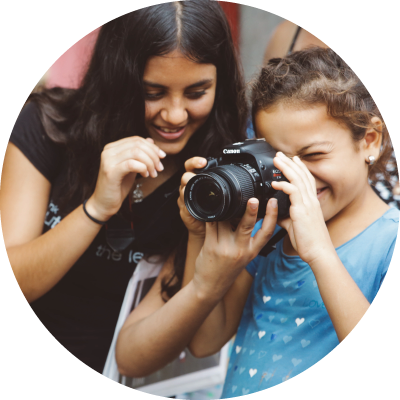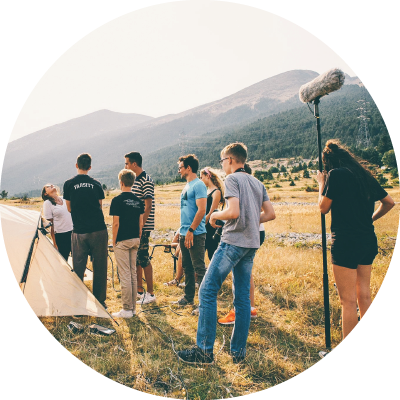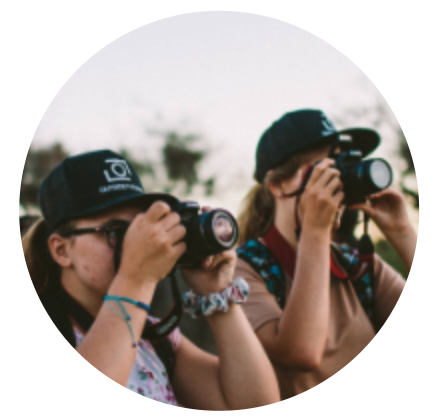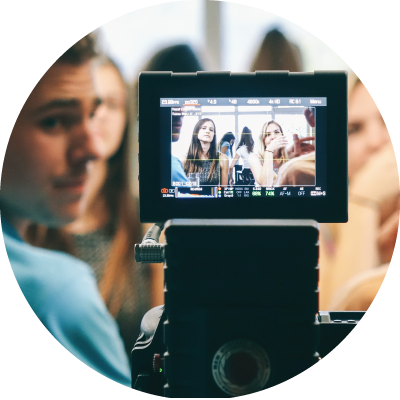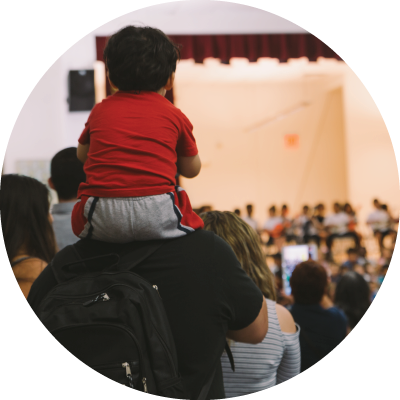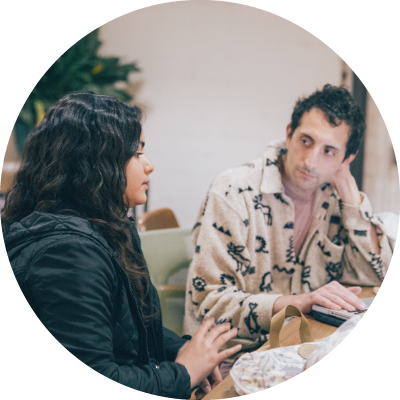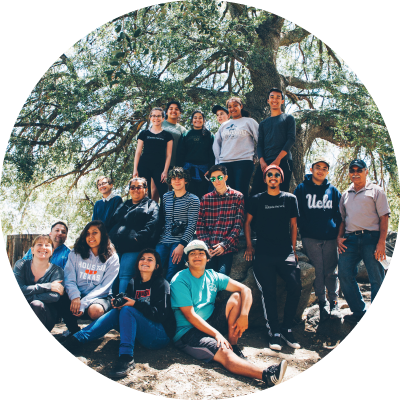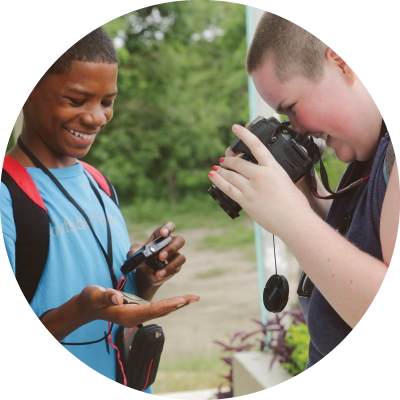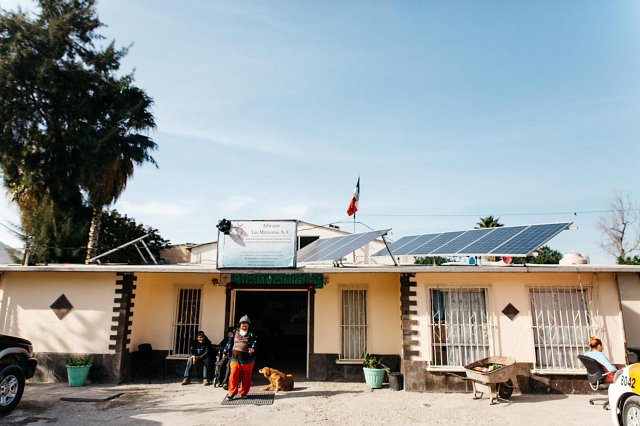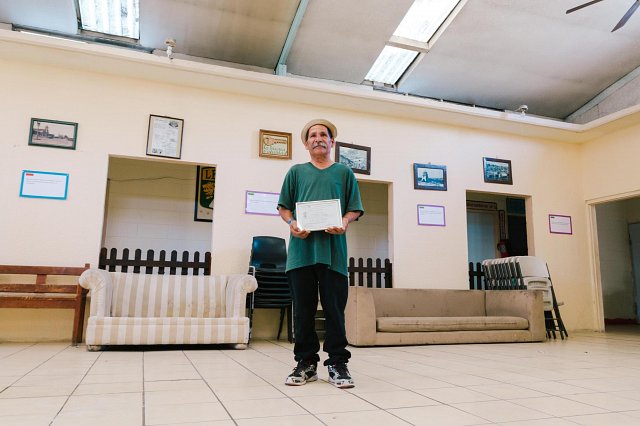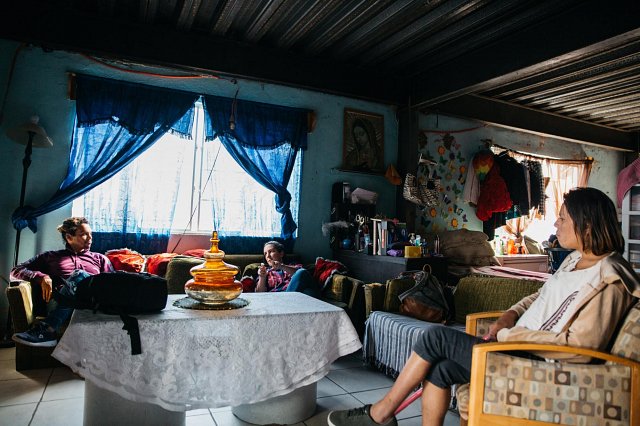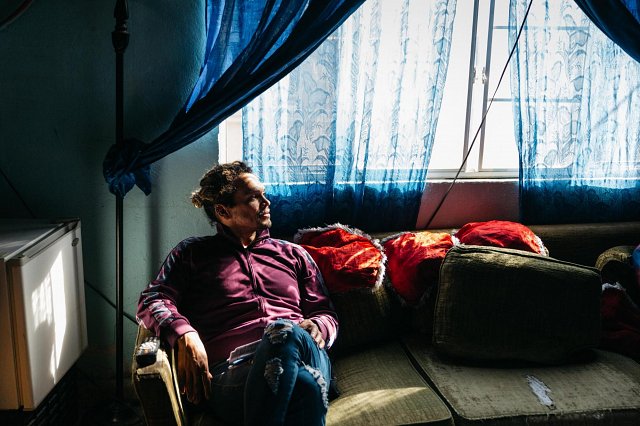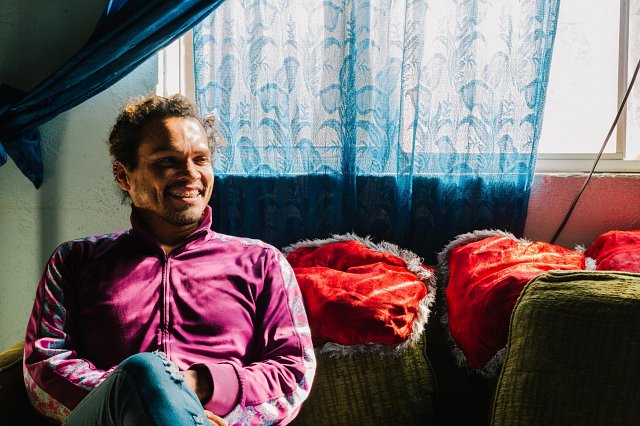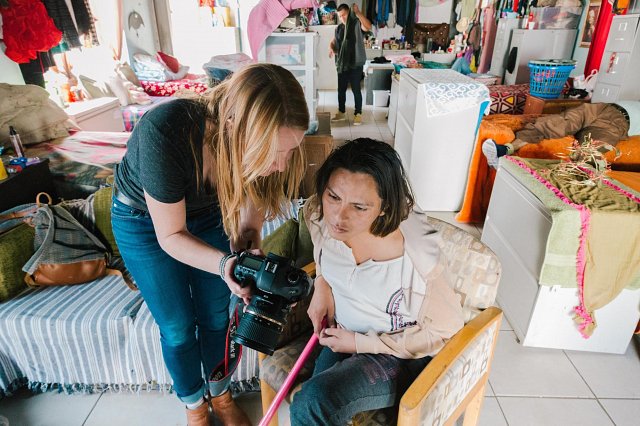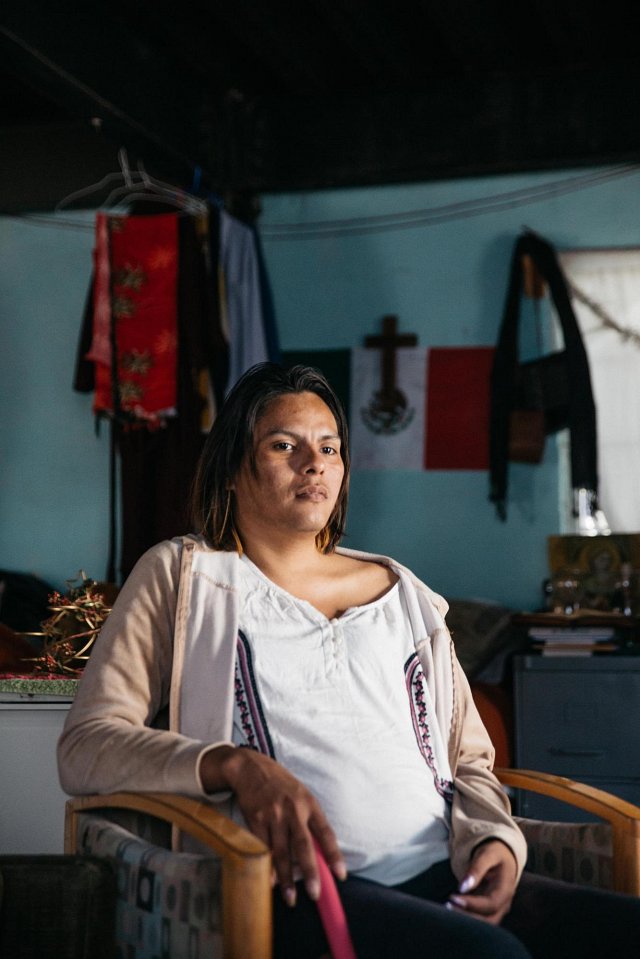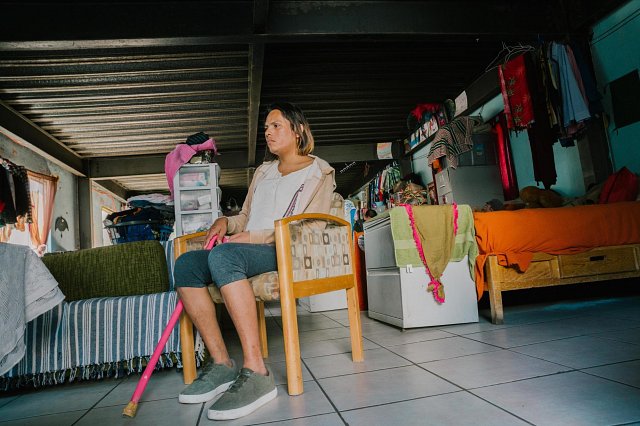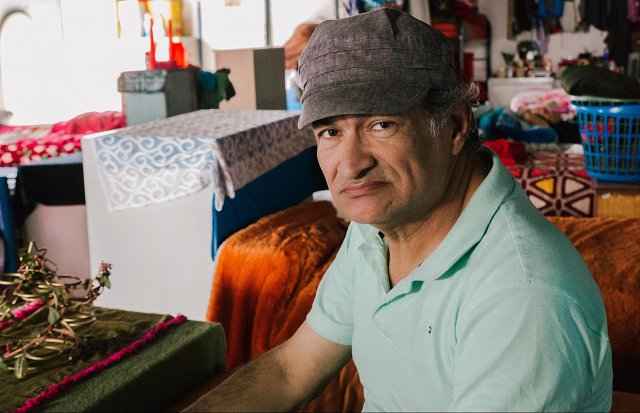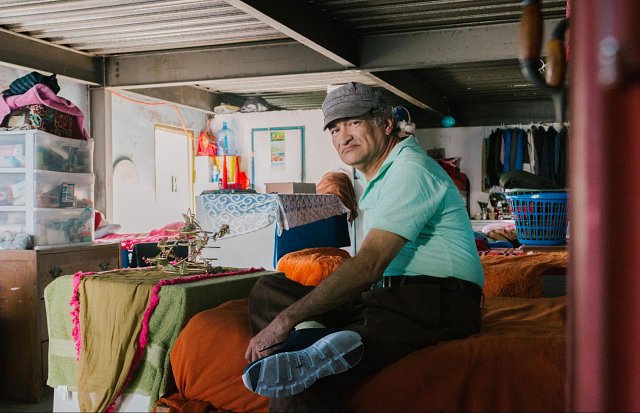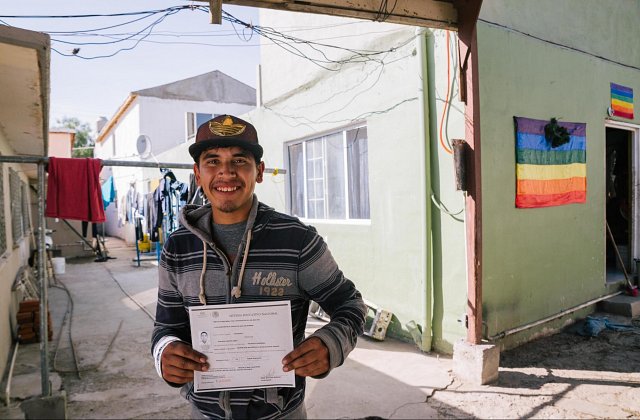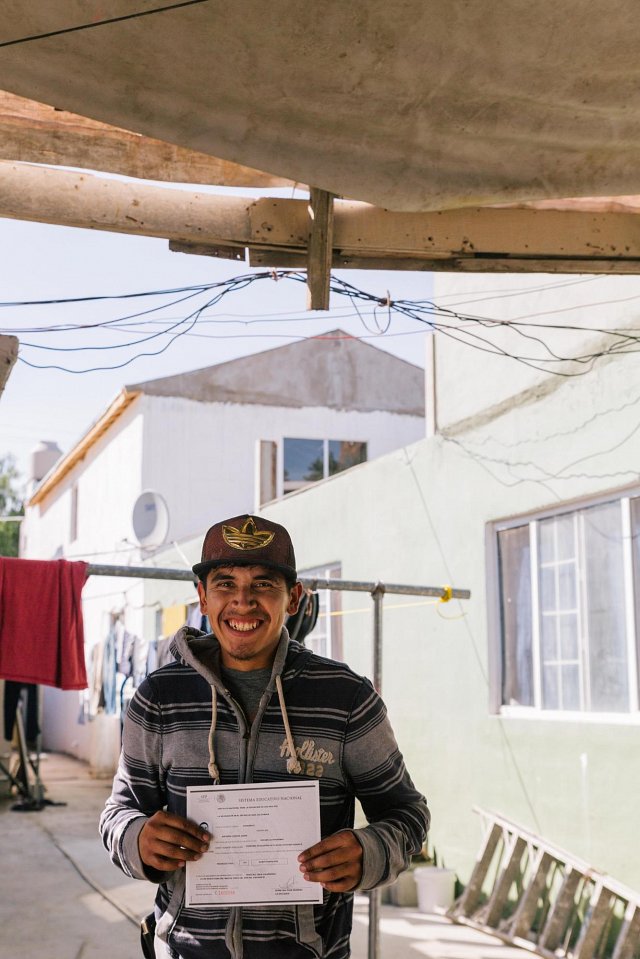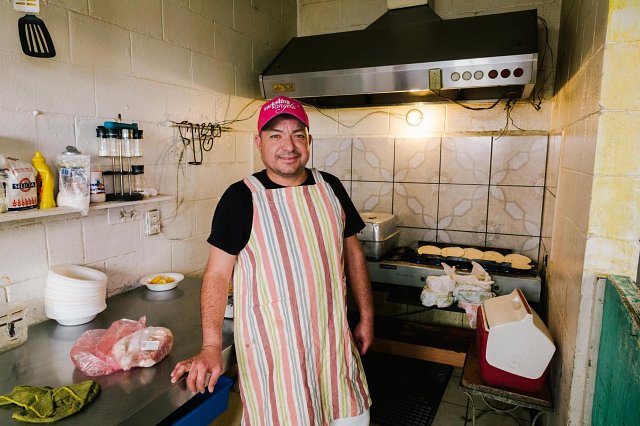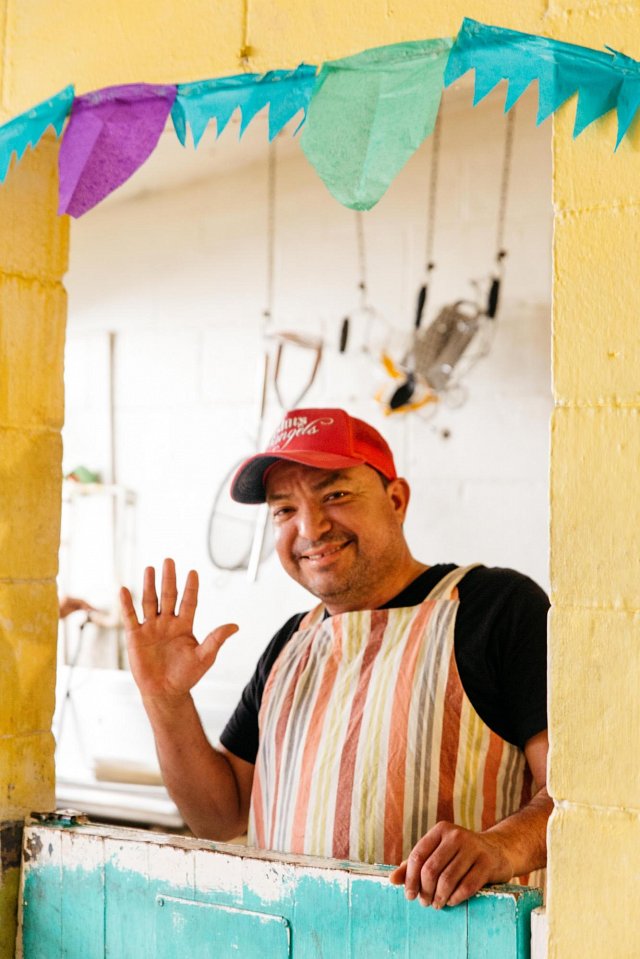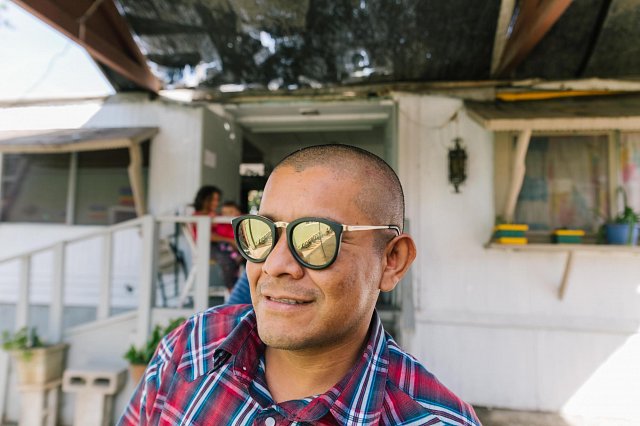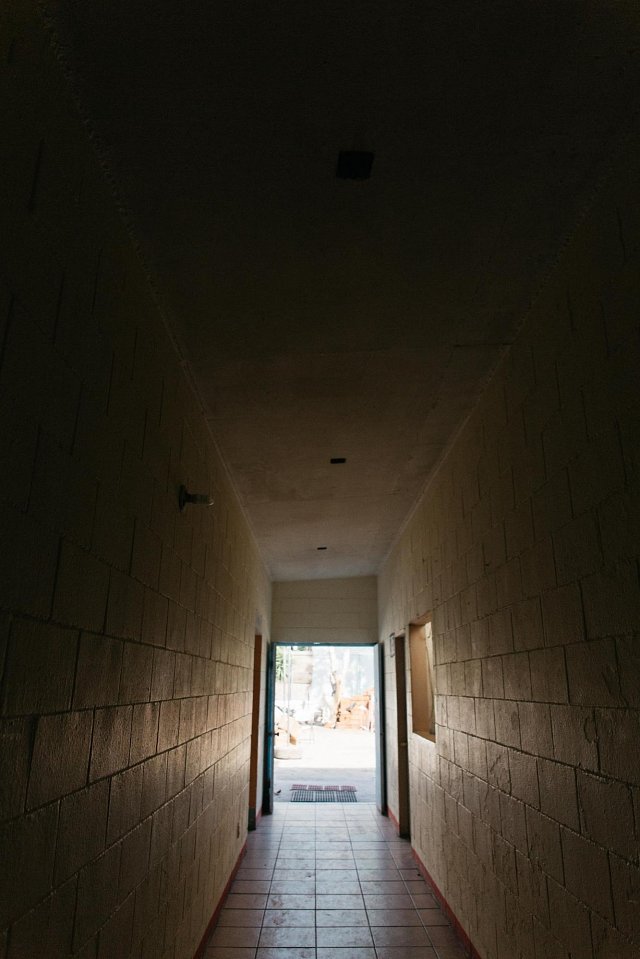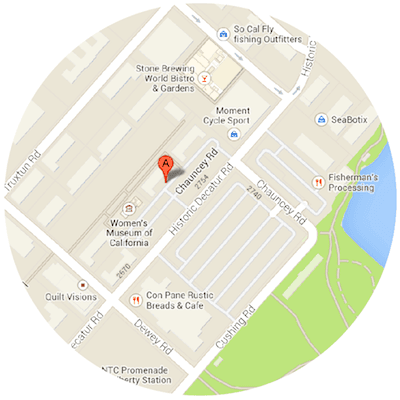In Translation: The Camera as a Catalyst for Conversation
We’re only driving 35 miles, but the distance feels further. Julia, an immersion trip coordinator for USD’s service learning program, dashes us through the freeway lanes and swifty carries us in her small car across the Otay Border. We drive east towards Tecate, far from downtown Tijuana, far from the housing developments, down a long hill to land at a lightly maintained road leading us up to Albergue las Memorias - a center for those living with HIV/AIDS, addictions, and their family members.
Las Memorias, a center providing care for individuals living with HIV/AIDS.
Las Memorias immediately feels welcoming and warm. A faded green “Bienvenidos” greets us at the front. Residents relax in the center room under signs that read “Vivir con Dignidad”. Julia quickly strikes up conversation with the center’s director to discuss what’s happening recently with his family and the center.
For many, the center is a last resort - a home to live and die with dignity after rejection from a society that still highly stigmatizes and rejects those affected with HIV/AIDS and their loved ones. Here, residents are treated without judgement, in a home that supports and welcomes them not just as patients who need healing, but as family, as people with life left to live.
We move through Las Memorias to learn more about the resources and initiatives there - medical care, education, food preparation, a wood shop, car repair, and a new wing to house more residents. We communicate in limited Spanish, gestures, facial expressions, laughter, music, and most importantly, through our lens.
We first meet Jose, an elder resident of the center who is quick to share his elementary diploma with us. While watching the local news on day, Jose saw a story about an elderly man who had received his high school diploma, and decided he too wished to complete his education. He approached the center director to ask if he could study, and they helped to arrange his schooling. Jose completed his diploma last year. He tells us studying keeps his mind occupied and focused in his aging.
Jose, recently graduated, showcases his elementary school diploma
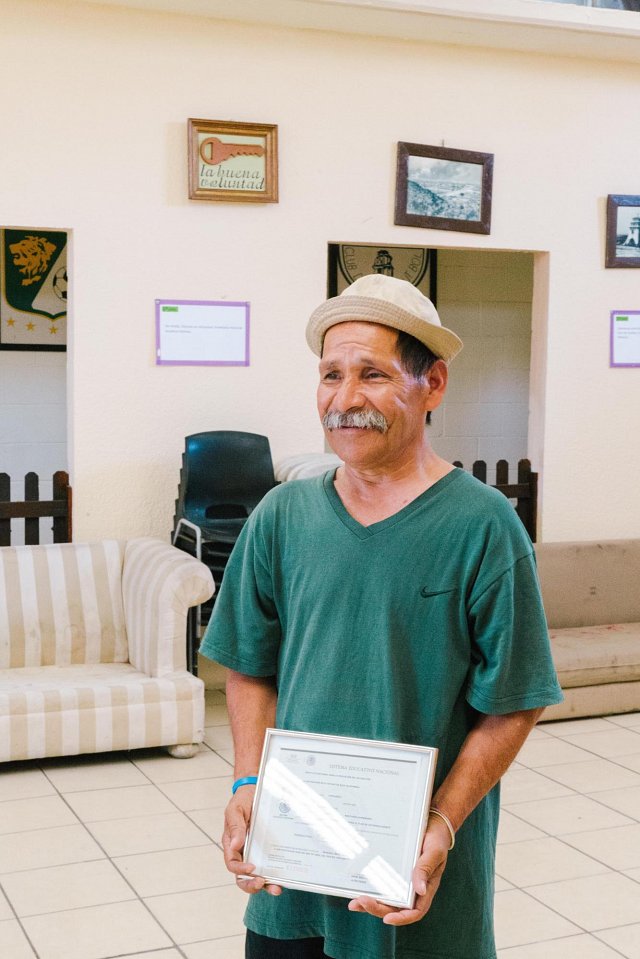
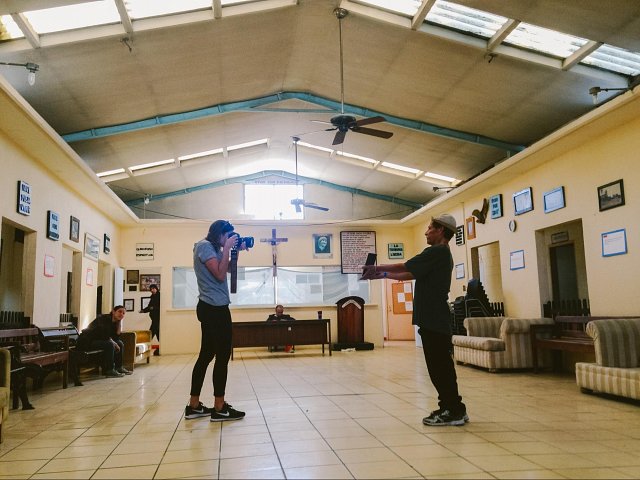
The residents of the LGBT space within the center invite us to visit them in their room. They ask us to wait outside as they prepare their home for us to enter. We enter their uniquely adorned home, and take a seat on couches that form a makeshift living room in their dormitory-style layout. We sit with Perla and China, who tell us about themselves, their lives, their aspirations.
The conversation flows freely, illuminated by an ever-so magic light pouring through the window. As the sun gently peers through the window upon our new friends, we cannot help but ask if they would like their photo taken. China delightfully responds “Siiii!”.
As soon as we pulled out our cameras, there was no shying away. The residents light up in front of the camera, directing their poses and expressions. Even though we cannot communicate verbally, the photos and session feel collaborative and expressive on their own. We become simply a medium between the subject and the lens.
China takes a rest after returning from the pharmacy
Perla and Hilary collaborate on angle and framing for her portrait.
Perla recently arrived at Las Memorias.
Hector, originally from Veracruz, worked as an English professor at a community college.
Antonio displays his recently earned elementary school diploma.
As we transitioned from the LGBT center, through the kitchen, pharmacy, and other areas of the center, we were embraced by a warm welcome from all the residents.
Joel, as the self-appointed and collectively agreed upon chef of the house, is right at home in his kitchen.
After several hours of visiting, photographs, and stories shared, we make our goodbyes until our next trip. On the drive home, we reflect on the stories we heard, and how lucky we were that our camera was invited into the space to witness these important narratives. Through our conversation guided by our lens, nothing was lost in translation- just simply found.

